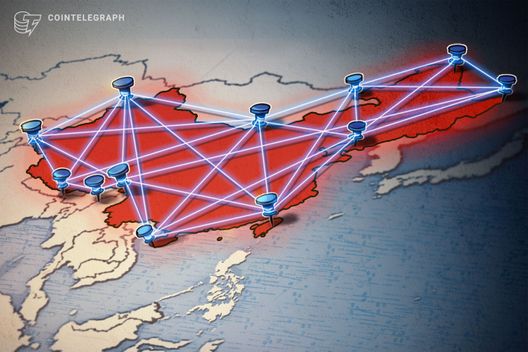With each passing day, new data regarding the coronavirus pandemic is being brought to the public’s attention. From the number of cases in various regions to ever-changing safety procedures like wearing masks in public, COVID-19 data is clearly present, yet remains inconsistent.
While a lack of accurate information may be frustrating on a personal level, ever-changing data is taking a toll on the health officials and researchers working effortlessly to help subdue the coronavirus crisis. To combat the issue, a San Francisco-based blockchain security company Hacera launched a data analytics platform in February to combat inaccurate COVID-19 data.
Hacrera’s founder, Jonathan Levi, told Cointelegraph that the platform known as MiPasa is a distributed and verifiable data hub that is being used to collect, validate and leverage COVID-19 data, saying:
“MiPasa is using data in an effective, humane and privacy-respecting way. At its heart, MiPasa is based on blockchain technology and was designed to support governments, municipalities, application builders and individuals alike.”
According to Levi, one of the main problems faced by clinicians, scientists and researchers studying data behind the crisis is a lack of integration of verified sources. As coronavirus cases around the world have surpassed 1 million, verifiable and trusted data is more important than ever before to help curb the crisis.
Understanding MiPasa
MiPasa partners with Oracle and Microsoft to utilize data analytics to synthesize COVID-19 data sources. Technology giant IBM recently announced that its blockchain platform will also support MiPasa. Jerry Cuomo, the vice president of IBM Blockchain, told Cointelegraph that MiPasa is an effective tool to help solve the lack of integrated, verified data sources around the coronavirus.
Cuomo further explained that the platform works to address inconsistencies and identify errors or misreporting before seamlessly integrating credible new data feeds. As a result, health officials can quickly respond and devise solutions that can help subdue the outbreak or support recovery from the coronavirus.
Cuomo added that MiPasa is gathering information from institutions such as Johns Hopkins University, the Israeli Ministry of Health, the United States Centers for Disease Control and Prevention, and the World Health Organization in order to determine hot spots, information on individuals and state authorities, health institutions and more. Once data is collected, the platform makes sure the information is accurate. Cuomo said:
“MiPasa ensures that new data entered into the system matches the original. Finally, a third level of validation comes from the public, who could report inconsistencies or bad data, giving public health officials a way to analyze and respond to public sentiment.”
As more technology partners bring analytics into MiPasa, new data streams can be provided, which will enhance the platform’s value, as explained by Cuomo, MiPasa is looking to provide not only raw data but also observations from that data, adding: “We are currently bringing in analytic tools like IBM Watson to help with this.”
Blockchain ensures private, trusted data on MiPasa
While accurate data from different sources could greatly help subdue the coronavirus pandemic, Cuomo mentioned that it’s been challenging to onboard new data sources to the MiPasa platform because of data privacy concerns, as companies remain hesitant to share sensitive data on an open network.
Unlike a traditional database with a single network administrator, MiPasa is built on IBM’s blockchain platform, which is powered by Hyperledger Fabric. All of the data generated across MiPasa is recorded on an immutable, shared ledger. In turn, COVID-19 information on MiPasa is accessible to network participants with permission. Additionally, the data recorded on the platform cannot be altered.
According to Cuomo, the real benefit of using blockchain in conjunction with MiPasa is that it provides trustworthy data. He explained that blockchain allows for multiple administrators to collaborate over the validity of ever changing data.
“When data is coming from Johns Hopkins, for example, we can quickly verify the information is truly from that organization, since multiple companies like Oracle, Microsoft and IBM collaborate to validate that data.”
Privacy plays a key role in getting organizations on board to share their data on MiPasa. While this ensures data can easily be shared across a network of different organizations, it also guarantees privacy.
While MiPasa works to combine, ageragate and bring together public data, personally identifiable information is never shared. The platform supports decentralized identifiers to encode personal information. Levi also noted that Hacera leverages a product known as Private-sea, which is based on zero-knowledge proofs, which use cryptography to allow data to be shared between different entities without revealing sensitive information.
Cuomo pointed out that it’s important for organizations to understand the privacy measures behind MiPasa, as the platform thrives on data, adding, “MiPasa is a data hub, therefore its utility is a function of the data sources that it contains.”
A MiPasa mobile app could come next
Although MiPasa is catering primarily to researchers and health officials, Levi noted that the platform is designed to help the public as well. He mentioned that Hacera is currently working on integrating data from mobile applications, along with navigating privacy and regulation restrictions, as a mobile consumer facing application could come next. For now though, Levi remains focused on the development of MiPasa and gathering relevant data.
“Like everyone else, we have been following the development of the coronavirus crisis with growing concern. In February, we took a deep-dive into the data and were amazed by the inconsistencies, gaps, and sheer lack of reliable information between different sources and entities. It quickly became very clear that no solution for the containment or treatment of COVID-19 can be developed using the existing data sets, so we are working hard to change this by leveraging blockchain and other technologies.”









